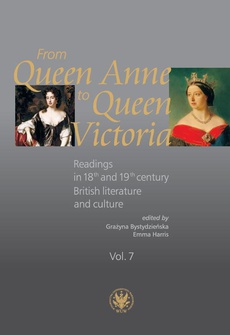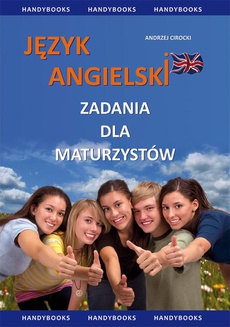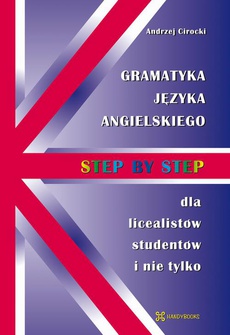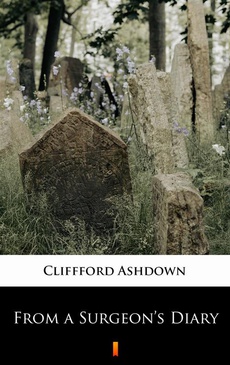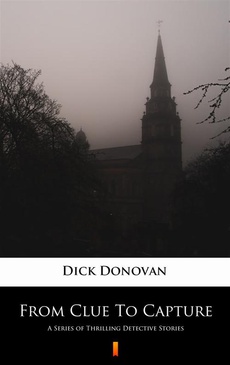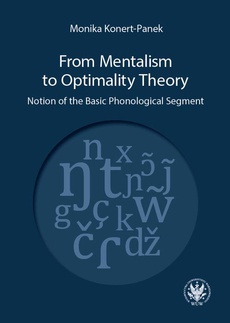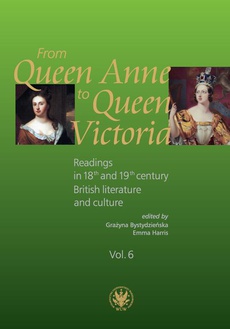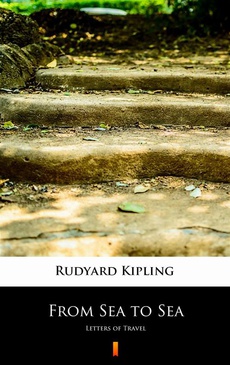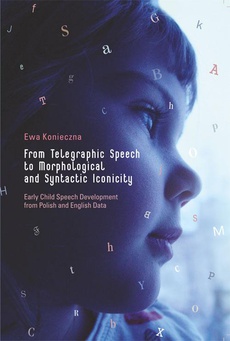POLECAMY
From Queen Anne to Queen Victoria. Volume 7
Readings in 18th and 19th century British literature and culture
Redakcja:
Wydawca:
Format:
epub, mobi, pdf, ibuk
Od królowej Anny do królowej Wiktorii. Wykłady o literaturze i kulturze brytyjskiej z XVIII i XIX wieku. Tom 7
Siódmy tom serii "From Queen Anne to Queen Victoria" zawiera zarówno nowe odczytania podejmowanych wcześniej zagadnień, jak i analizy kolejnych istotnych tematów badawczych. Autorzy koncentrują się na literaturze, kulturze, historii społecznej i politycznej Wielkiej Brytanii w okresie, w którym kształtowały się zręby przemysłowej nowoczesności. Badają wpływ imperium brytyjskiego na światowe dziedzictwo kulturowe, w tym na zależności klasowe oraz związane z płcią i z rasą, których oddziaływanie jest w różnym stopniu odczuwalne do dzisiaj.
Współtwórcy: Dorota Babilas, Ana Clara Birrento, Rebecca W. Boylan, Grażyna Bystydzieńska, Paul Goring, Michael Hollington, Sophia C. Jochem, Joanna Kokot, Marta Komsta, Catherine Maxwell, Monika Mazurek, Magdalena Pypeć, Dominic Rainsford, Katarzyna Strzyżowska, Urszula
Terentowicz-Fotyga, Przemysław Uściński.
*********
The present, seventh, volume of the series From Queen Anne to Queen Victoria offers profitable re-visitations of old themes, as well as explorations of new themes and problems. The volume focuses on the literature, culture, and political and social history of Britain in a period when the structures of industrial modernity were being created, and examines Britain’s imprint on the global cultural heritage, including class, gender and race-based hierarchies that persist in varying degrees into the present.
Contributors: Dorota Babilas, Ana Clara Birrento, Rebecca W. Boylan, Grażyna Bystydzieńska, Paul Goring, Michael Hollington, Sophia C. Jochem, Joanna Kokot, Marta Komsta, Catherine Maxwell, Monika Mazurek, Magdalena Pypeć, Dominic Rainsford, Katarzyna Strzyżowska, Urszula Terentowicz-Fotyga, Przemysław Uściński.
*********
Prof. dr hab. Grażyna Bystydzieńska (ORCID 0000-0001-9653-061X) – profesor zwyczajny Zakładu Literatury Brytyjskiej Instytutu Anglistyki Uniwersytetu Warszawskiego.
Dr Emma Harris (ORCID 0000-0003-2840-961X) – wykładowca brytyjskiej historii społecznej i kulturowej w Instytucie Anglistyki Uniwersytetu Warszawskiego. Były dyrektor Instytutu w latach 190–2014 i dziekan Wydziału Neofilologii w latach 1999–2005. Rozprawą o ekonomicznych konsekwencjach I wojny światowej na ziemiach polskich obroniła doktorat z historii ekonomii na uniwersytecie w Edynburgu. W tym okresie jej zainteresowania badawcze przesunęły się w stronę XIX-wiecznej historii społecznej i politycznej, a w szczególności kontaktów międzynarodowych, w tym pomysłów, dostosowań i praktyk uchodźców politycznych, zwłaszcza demokratów-uchodźców, którzy opuścili Polskę i wyjechali do Europy Zachodniej w 1831 roku po upadku powstania listopadowego.
---------
Prof. dr hab. Grażyna Bystydzieńska (ORCID 0000-0001-9653-061X) – full professor at the Department of British Literature at the Institute of English Studies at the University of Warsaw.
Dr Emma Harris (ORCID 0000-0003-2840-961X) – after a doctorate in Economic History at the University of Edinburgh with a thesis on the economic consequences of the first world war in Polish territories, Emma Harris has taught British social and cultural history in the Institute of English Studies of the University of Warsaw since the late 1970s. She was the director of the Institute from 1990 to 2014 and dean of the Faculty of Modern Languages from 1999-2005. Over this period, her research interests have shifted towards 19th-century social and political history, and in particular international contacts, including the ideas, adjustments and practices of political refugees, especially the refugee democrats who left Poland for Western Europe in 1831 after the unsuccessful November Uprising against Russian rule.
| Rok wydania | 2021 |
|---|---|
| Liczba stron | 214 |
| Kategoria | Język angielski |
| Wydawca | Uniwersytet Warszawski |
| ISBN-13 | 978-83-235-5284-0 |
| Numer wydania | 1 |
| Informacja o sprzedawcy | ePWN sp. z o.o. |
Ciekawe propozycje
Spis treści
| From the Editors | 7 |
| Dorota Babilas | |
| From Britain’s Most Unloved Queen to the Favourite? Film | |
| Representations of Queen Anne | 11 |
| Ana Clara Birrento | |
| The Possible Worlds of Oliphant and Eliot in Miss Marjoribanks and Middlemarch | 21 |
| Rebecca W. Boylan | |
| Saving Face: Respecting Nature’s Inversions in Thomas Hardy’s A Pair of Blue Eyes | 31 |
| Grażyna Bystydzieńska | |
| “In religion all roads have their obstacles”. Loss and Gain by John Henry Newman as a Conversion Narrative | 41 |
| Paul Goring | |
| “I saw the Man, that saw the Man, that said he saw this wondrous Sight”: Mediating the Spectacle of George III’s Coronation in the Newspapers | 53 |
| Michael Hollington | |
| Dickens the Vagabond and the Tradition of Nightwalking | 65 |
| Sophia C. Jochem | |
| “We must marry ’em”: Marriages and Endings in Charles Dickens’s Dombey and Son | 79 |
| Joanna Kokot | |
| The “(Un)fair Play” Method in Arthur Conan Doyle’s Sherlock Holmes Tales | 89 |
| Marta Komsta | |
| Progress and/as Utopia in James Hume Nisbet’s The Great Secret: A Tale of To-morrow | 103 |
| Catherine Maxwell | |
| Cultivating the Imagination: Plants and Flowers in Later Victorian Poetry | 113 |
| Monika Mazurek | |
| Reviving the Anglican Confession in the Victorian Novel | 139 |
| Magdalena Pypeć | |
| Dickens Writes Trauma: Post-Traumatic Stress Disorder in The Mystery of Edwin Drood | 149 |
| Dominic Rainsford | |
| 1827: Real, Fictional, and Mythic Time in The Pickwick Papers | 165 |
| Katarzyna Strzyżowska | |
| Political Plotters or Puppets? The Role of Women at the Court of Queen Anne | 179 |
| Urszula Terentowicz-Fotyga | |
| The Semiotics of the Gothic Country House in Jane Austen’s Northanger Abbey | 189 |
| Przemysław Uściński | |
| Figures of Hypocrisy: Pity and Poverty in Charles Dickens’s Hard Times | 201 |

